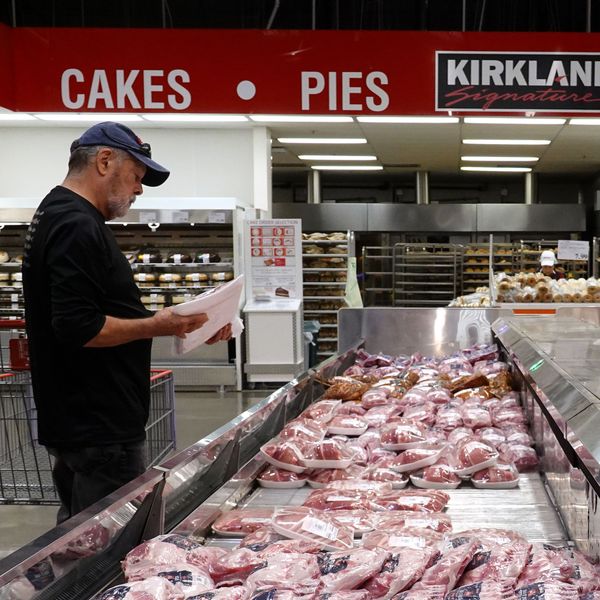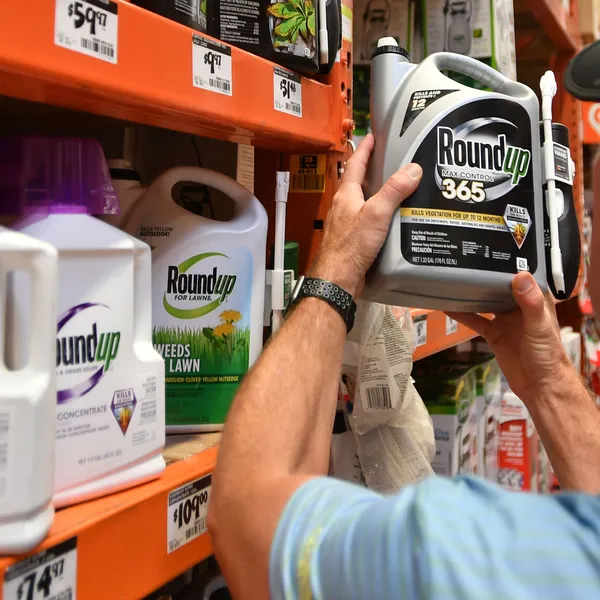How Much Pesticide Residue on Your Produce? FDA Doesn't Know
New GAO report reveals FDA doing scant testing for pesticides
The Food and Drug Administration is carrying out little testing for pesticide residues on fruit and vegetables, a new report by a federal watchdog reveals.
The Government Accountability Office (GAO) report (pdf) found that in 2012, the FDA tested less than one-tenth of 1 percent of imported shipments.
FDA does not test for some commonly used pesticides--like glyphosate--for which the EPA has established tolerance levels, nor does FDA disclose in its annual reports that it doesn't do this testing, the GAO analysis states.
In addition, GAO charges, "FDA does not use statistically valid methods consistent with Office of Management and Budget standards to collect national information on the incidence and level of pesticide residues."
The Center for Biological Diversity, a nonprofit conservation organization, says the report shows that inadequate safeguards are in place and urged the FDA to take appropriate action.
"The FDA is supposed to be protecting the American people from dangers in their food and it's clear they've dropped the ball when it comes to pesticides," Lori Ann Burd, endangered species campaign director for the organization, said in a statement.
"As scientists continue to uncover information regarding the harmful effects of pesticides on human health and the environment, the American public deserves to be able to rely on FDA to provide the basic monitoring required to protect the health of people, wildlife and our waterways," Burd added.
An Urgent Message From Our Co-Founder
Dear Common Dreams reader, The U.S. is on a fast track to authoritarianism like nothing I've ever seen. Meanwhile, corporate news outlets are utterly capitulating to Trump, twisting their coverage to avoid drawing his ire while lining up to stuff cash in his pockets. That's why I believe that Common Dreams is doing the best and most consequential reporting that we've ever done. Our small but mighty team is a progressive reporting powerhouse, covering the news every day that the corporate media never will. Our mission has always been simple: To inform. To inspire. And to ignite change for the common good. Now here's the key piece that I want all our readers to understand: None of this would be possible without your financial support. That's not just some fundraising cliche. It's the absolute and literal truth. We don't accept corporate advertising and never will. We don't have a paywall because we don't think people should be blocked from critical news based on their ability to pay. Everything we do is funded by the donations of readers like you. Will you donate now to help power the nonprofit, independent reporting of Common Dreams? Thank you for being a vital member of our community. Together, we can keep independent journalism alive when it’s needed most. - Craig Brown, Co-founder |
The Food and Drug Administration is carrying out little testing for pesticide residues on fruit and vegetables, a new report by a federal watchdog reveals.
The Government Accountability Office (GAO) report (pdf) found that in 2012, the FDA tested less than one-tenth of 1 percent of imported shipments.
FDA does not test for some commonly used pesticides--like glyphosate--for which the EPA has established tolerance levels, nor does FDA disclose in its annual reports that it doesn't do this testing, the GAO analysis states.
In addition, GAO charges, "FDA does not use statistically valid methods consistent with Office of Management and Budget standards to collect national information on the incidence and level of pesticide residues."
The Center for Biological Diversity, a nonprofit conservation organization, says the report shows that inadequate safeguards are in place and urged the FDA to take appropriate action.
"The FDA is supposed to be protecting the American people from dangers in their food and it's clear they've dropped the ball when it comes to pesticides," Lori Ann Burd, endangered species campaign director for the organization, said in a statement.
"As scientists continue to uncover information regarding the harmful effects of pesticides on human health and the environment, the American public deserves to be able to rely on FDA to provide the basic monitoring required to protect the health of people, wildlife and our waterways," Burd added.
The Food and Drug Administration is carrying out little testing for pesticide residues on fruit and vegetables, a new report by a federal watchdog reveals.
The Government Accountability Office (GAO) report (pdf) found that in 2012, the FDA tested less than one-tenth of 1 percent of imported shipments.
FDA does not test for some commonly used pesticides--like glyphosate--for which the EPA has established tolerance levels, nor does FDA disclose in its annual reports that it doesn't do this testing, the GAO analysis states.
In addition, GAO charges, "FDA does not use statistically valid methods consistent with Office of Management and Budget standards to collect national information on the incidence and level of pesticide residues."
The Center for Biological Diversity, a nonprofit conservation organization, says the report shows that inadequate safeguards are in place and urged the FDA to take appropriate action.
"The FDA is supposed to be protecting the American people from dangers in their food and it's clear they've dropped the ball when it comes to pesticides," Lori Ann Burd, endangered species campaign director for the organization, said in a statement.
"As scientists continue to uncover information regarding the harmful effects of pesticides on human health and the environment, the American public deserves to be able to rely on FDA to provide the basic monitoring required to protect the health of people, wildlife and our waterways," Burd added.

